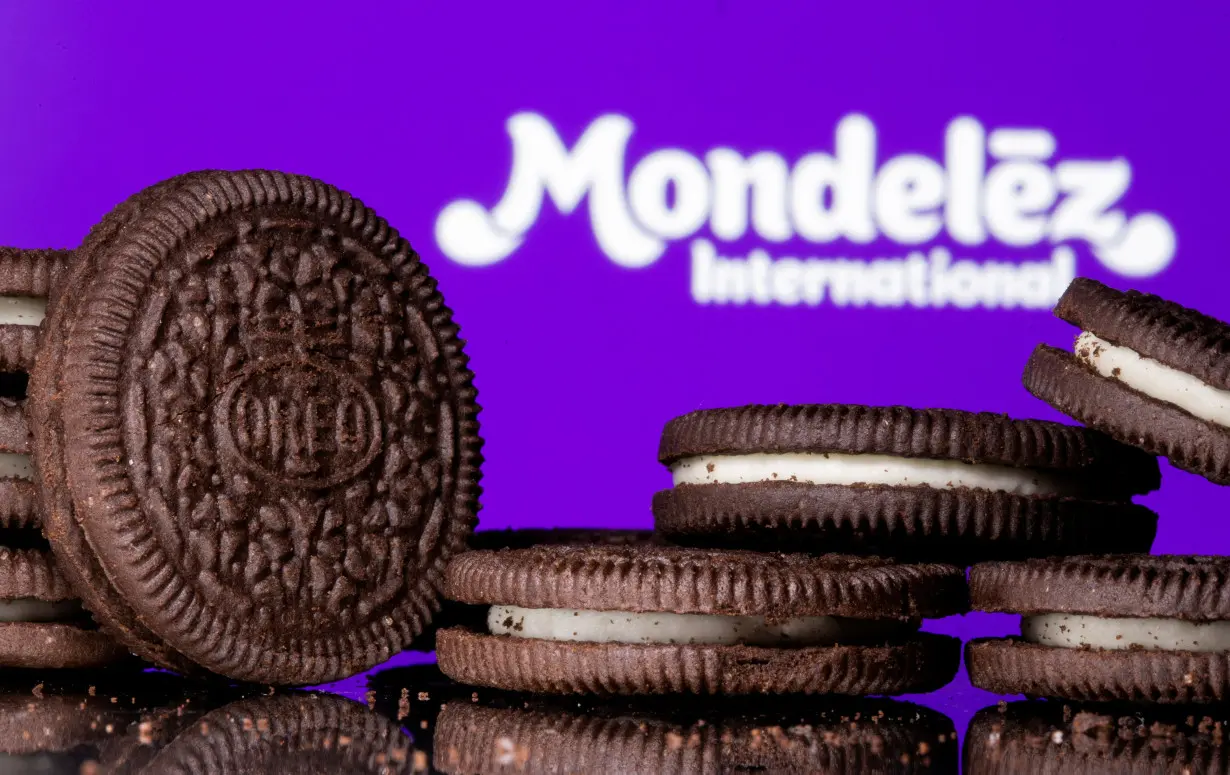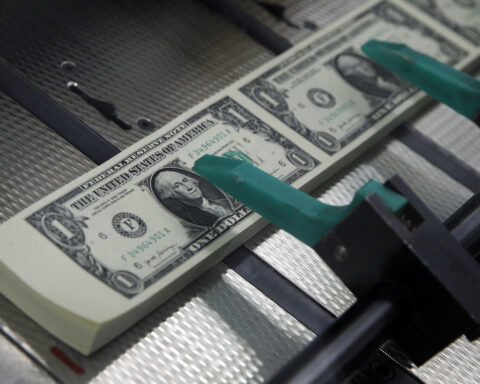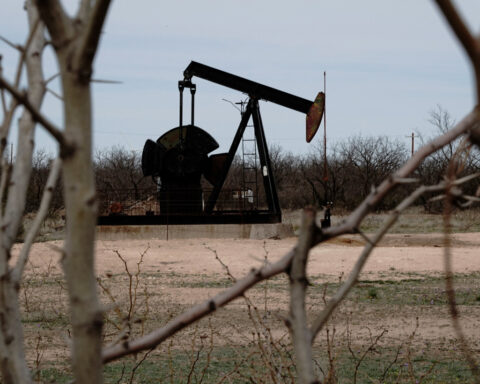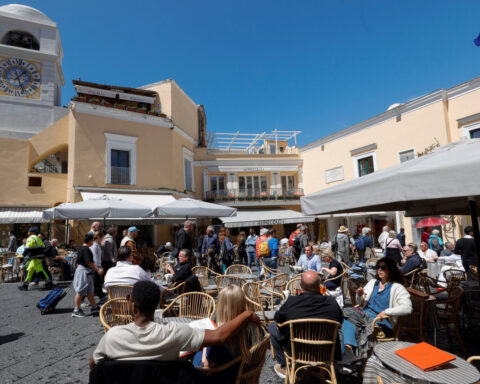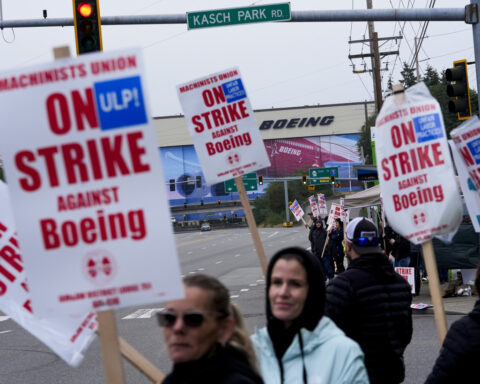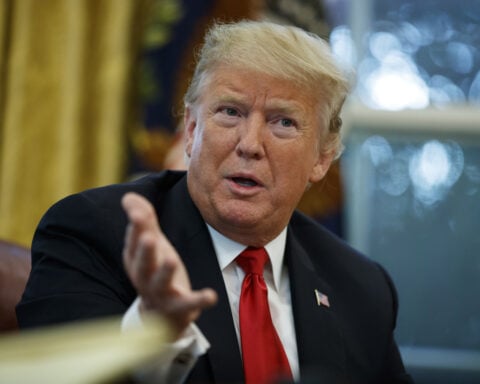By Jessica DiNapoli
NEW YORK (Reuters) - Oreo cookie-maker Mondelez put new management in place at its profitable Russian business this week, according to two internal company memos seen by Reuters that reveal fresh details of a corporate overhaul in Europe.
After months of boycotts and pressure from shareholders and activists to leave Russia, Chicago-based Mondelez stopped advertising in the country, but has failed to exit Russia entirely.
In one of the internal memos seen by Reuters, Europe president Vince Gruber informed staff that it appointed a new general manager to lead its Russia business, which Gruber described as a "standalone organization."
But in his new role, the Russia general manager reports to another executive who reports to Gruber, the memo said. The arrangement may not placate Mondelez critics. The company has three factories in Russia and has continued to sell its products including Milka chocolate there despite investor pressure and boycotts calling for it to leave.
"In the law we use the expression 'distinction without a difference.' This is an attempted workaround that is not very meaningful," said Nell Minow, a corporate governance expert and vice chair of ValueEdge Advisors. "There are certain kinds of business connections where you see a justification, if it has to do with health, urgently needed supplies. These are cookies and there really is no excuse."
In response to Reuters' questions, Mondelez said on Friday that "effective at year-end 2023, we have stood up our local business to operate more independently."
It added: "Products sold in Russia are now produced and distributed locally, with no imports of finished goods from Europe into Russia or exports from Russia into Europe."
McDonald’s, Starbucks and many other global brands left Russia following its invasion of neighboring Ukraine in 2022, writing off billions in assets.
Mondelez rivals including Maggi manufacturer Nestle continue to operate in Russia. Food does not fall under any international sanctions.
The company said in its annual report released in February that the war in Ukraine is a risk to its business that could lead to loss of life and physical damage and destruction of its property.
"We might also face questions or negative scrutiny from stakeholders about our operations in Russia despite our role as a food company and our public statements about Ukraine and Russia," Mondelez said in the annual report.
In a company statement last year, Mondelez said its business in Russia provides "shelf-stable products that are daily staples for ordinary people," and that suspending operations "would mean cutting off part of the food supply for many families who have no say in the war."
Mondelez executive Gruber told staff in one memo on Jan. 31 that the company would reorganize the European region into 14 "commercial units" with responsibility for smaller areas and individual countries. On Feb. 13, a separate memo from Gruber informed staff that Alexey Blinov will become the new Russia general manager. Blinov is a Moscow-based finance executive for Mondelez, according to LinkedIn.
Europe, where Mondelez's Milka and Cadbury chocolate is popular, is the company's biggest market by sales, but it has been at odds with retailers there over price hikes.
Following Russia's invasion of Ukraine, Mondelez said it was scaling back its business in Russia and focusing on "basic offerings," but still faced internal pressure from employees to exit.
A corporate boycott of Mondelez broke out in the Nordic countries last year after a Ukrainian agency named the company an "international sponsor of war."
Mondelez said last June it would make its Russian operations "stand-alone with a self-sufficient supply chain before the end of the year" but did not provide additional details.
Its Russia business is more profitable than it has been historically, the company said in its annual report released earlier this month.
Before the war, Mondelez executives in Moscow also managed its operations in Ukraine, a source familiar with the structure said. Its Ukraine business was removed from Moscow supervision following Russia's February 2022 invasion of Ukraine, the source said.
(Reporting by Jessica DiNapoli in New York; Editing by Matthew Lewis)

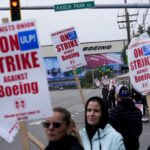 Boeing's aircraft deliveries and orders in 2024 reflect the company's rough year
Boeing's aircraft deliveries and orders in 2024 reflect the company's rough year
 Trump says he will create an 'External Revenue Service' agency to collect tariff income
Trump says he will create an 'External Revenue Service' agency to collect tariff income
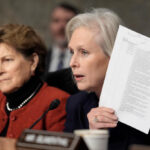 Takeaways from Pete Hegseth’s contentious confirmation hearing
Takeaways from Pete Hegseth’s contentious confirmation hearing
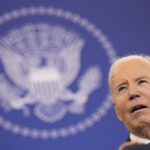 Biden administration will announce it's lifting state sponsor of terrorism designation for Cuba
Biden administration will announce it's lifting state sponsor of terrorism designation for Cuba
 LVMH says 'impossible' to control final sales point after report of champagne shipments to Russia
LVMH says 'impossible' to control final sales point after report of champagne shipments to Russia
 UK anti-corruption minister resigns over ties to ousted Bangladesh PM
UK anti-corruption minister resigns over ties to ousted Bangladesh PM
 Brown-Forman closing Louisville cooperage, reducing global workforce by 12%
Brown-Forman closing Louisville cooperage, reducing global workforce by 12%
 Mad Men's Jon Hamm is named Hasty Pudding's Man of the Year
Mad Men's Jon Hamm is named Hasty Pudding's Man of the Year
 Celebrated artwork will be removed from an Iowa park as its creator ends fight to preserve the work
Celebrated artwork will be removed from an Iowa park as its creator ends fight to preserve the work
 As Formula One questions swirl, Colton Herta wants to keep his focus on winning first IndyCar crown
As Formula One questions swirl, Colton Herta wants to keep his focus on winning first IndyCar crown
